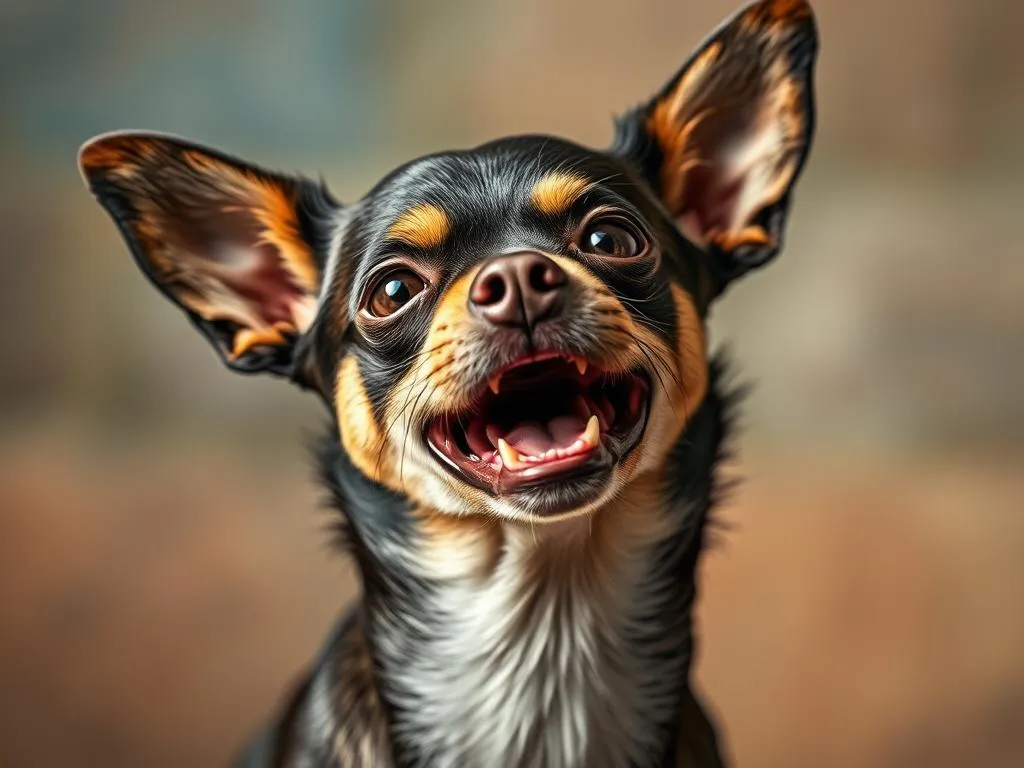
Introduction
Chihuahuas, often known for their petite stature and big personalities, are one of the most recognizable dog breeds in the world. Despite their small size, Chihuahuas can exhibit behaviors that may be perceived as aggressive, leading many to wonder, why are Chihuahuas so aggressive? Understanding the nuances of aggression in dogs, particularly in Chihuahuas, is crucial for potential owners and current caretakers. This article will delve into the underlying factors contributing to this behavior, providing insights that can help promote a healthier relationship with these spirited little dogs.
Understanding Dog Aggression
Definition of Aggression in Dogs
Aggression in dogs is a complex behavior that can stem from various factors, including genetics, environment, and socialization. In essence, canine aggression is a display of force or hostility toward other animals or humans. It can manifest in different forms, including:
- Fear-based aggression: Often a reaction to perceived threats.
- Territorial aggression: Protecting space or belongings.
- Protective aggression: Defending owners or offspring.
Common Signs of Aggression
Recognizing the signs of aggression is crucial for any dog owner. Some common body language indicators in aggressive dogs include:
- Growling: A warning sign that a dog is uncomfortable.
- Barking: Often a vocal expression of agitation or fear.
- Lunging: A forward movement that can indicate a desire to attack or intimidate.
- Snapping: Quick, aggressive movements that can escalate if not addressed.
Understanding these signals can help mitigate aggressive behaviors before they escalate.
The Chihuahua Breed Profile
History and Origin of Chihuahuas
The Chihuahua breed has a rich history that dates back to ancient civilizations in Mexico. Believed to have descended from the Techichi, a small companion dog, Chihuahuas have cultural significance in Mexican folklore and traditions. Their size made them ideal companions, and they became popular among royalty and commoners alike.
Physical Characteristics
Chihuahuas are known for their small size, typically weighing between 2 to 6 pounds. They come in various coat types, including:
- Smooth coat: Short and shiny, requiring minimal grooming.
- Long coat: Soft and fluffy, needing more regular maintenance.
Their coat colors are diverse, ranging from fawn to black, white, and even chocolate, making them visually appealing to dog lovers.
Temperament and Personality Traits
Despite their diminutive size, Chihuahuas are characterized by a confident and often feisty temperament. They are known for being loyal, alert, and sometimes stubborn. Compared to larger breeds, Chihuahuas may display a more pronounced protective instinct, which can contribute to their aggressive behaviors if not properly managed.
Factors Contributing to Aggression in Chihuahuas
Genetics and Breed Traits
Like many dog breeds, Chihuahuas have inherited behavioral tendencies that can influence their temperament. Some genetic factors may predispose them to aggressive behaviors, particularly if they have been bred for specific traits such as protection or alertness. Inbreeding practices can also exacerbate these tendencies, leading to heightened aggression.
Socialization and Environment
Early socialization plays a critical role in shaping a Chihuahua’s behavior. Dogs that are not exposed to various environments, people, and other animals during their formative years may develop fear or anxiety, resulting in aggressive behaviors. A well-socialized Chihuahua is typically more adaptable and less likely to react aggressively to perceived threats.
Fear and Anxiety
Fear is a significant contributor to aggression in Chihuahuas. When these tiny dogs feel threatened or cornered, they may resort to aggressive behaviors as a defense mechanism. Common triggers for fear-based aggression can include:
- Loud noises (thunder, fireworks)
- Sudden movements or unfamiliar people
- Intimidating larger dogs
Recognizing these triggers can help owners manage and mitigate aggressive responses.
Protective Instincts
Chihuahuas are naturally inclined to be watchdogs due to their alertness and loyalty. This protective instinct, combined with their small size, can lead to aggressive behaviors when they perceive a threat to their owner or territory. Their small stature may encourage them to overcompensate by displaying aggression, even when the situation does not warrant it.
Addressing Aggression in Chihuahuas
Training and Socialization Techniques
Effective training is essential in addressing aggression in Chihuahuas. Some effective strategies include:
- Positive reinforcement: Rewarding desirable behaviors with treats or praise can encourage good conduct.
- Desensitization: Gradually exposing a Chihuahua to their triggers in a controlled environment can reduce fear and aggressive responses.
- Basic obedience training: Teaching commands like “sit” and “stay” can help improve overall behavior.
Professional Help
In some cases, it may be necessary to seek professional help from a dog trainer or behaviorist. Recognizing when to bring in an expert is crucial for managing severe aggression. Professional trainers can provide tailored strategies and insights, ensuring a safer environment for both the dog and its owner.
Creating a Safe Environment
Owners can help reduce aggression by creating a calm living space. Some tips include:
- Designate a safe area: Provide a cozy space where the Chihuahua can retreat when feeling anxious.
- Manage interactions: Supervise introductions to new people and pets to prevent confrontations.
- Maintain routine: Consistency in daily routines can help alleviate anxiety in Chihuahuas.
Myths and Misunderstandings About Chihuahua Aggression
Common Myths
Chihuahuas often face stereotypes that label them as inherently aggressive. However, this perception is largely a misunderstanding. While some Chihuahuas may exhibit aggressive tendencies, their behavior is often a result of environmental factors, lack of training, or fear rather than a breed-wide characteristic. It’s essential to distinguish between individual dog personalities and breed tendencies.
The Role of Owner Perception
Owner behavior can significantly influence a Chihuahua’s aggression. If owners are overly protective or anxious, their dog may pick up on these cues and become more aggressive. Responsible ownership, which includes proper training and socialization, can help mitigate these behaviors, leading to a well-adjusted companion.
Conclusion
In summary, understanding why Chihuahuas are so aggressive involves examining various factors, including genetics, socialization, and environment. By recognizing the signs of aggression and addressing them through proper training and socialization techniques, owners can foster a positive relationship with their Chihuahua. It is crucial to approach ownership with a commitment to responsible practices, ensuring that these vibrant little dogs live happy, well-adjusted lives.
FAQs About Chihuahua Aggression
Q: Are all Chihuahuas aggressive?
A: No, not all Chihuahuas are aggressive. Behavior varies from dog to dog and is influenced by genetics, socialization, and environment.
Q: Can aggression in Chihuahuas be trained out?
A: Yes, with proper training and socialization, many aggressive tendencies can be managed or reduced.
Q: What should I do if my Chihuahua shows aggressive behavior?
A: Assess the triggers for the aggression and consider seeking advice from a professional trainer or behaviorist.
Q: How can I socialize my Chihuahua?
A: Gradually expose your Chihuahua to different people, pets, and environments in a controlled manner, rewarding positive interactions.
Q: Is it common for Chihuahuas to be fearful?
A: Yes, Chihuahuas can be prone to fear-based aggression, especially if not properly socialized. Understanding their triggers is vital.
By addressing these factors and fostering a positive training environment, you can ensure that your Chihuahua is not only a loving companion but also a well-adjusted member of your family.








